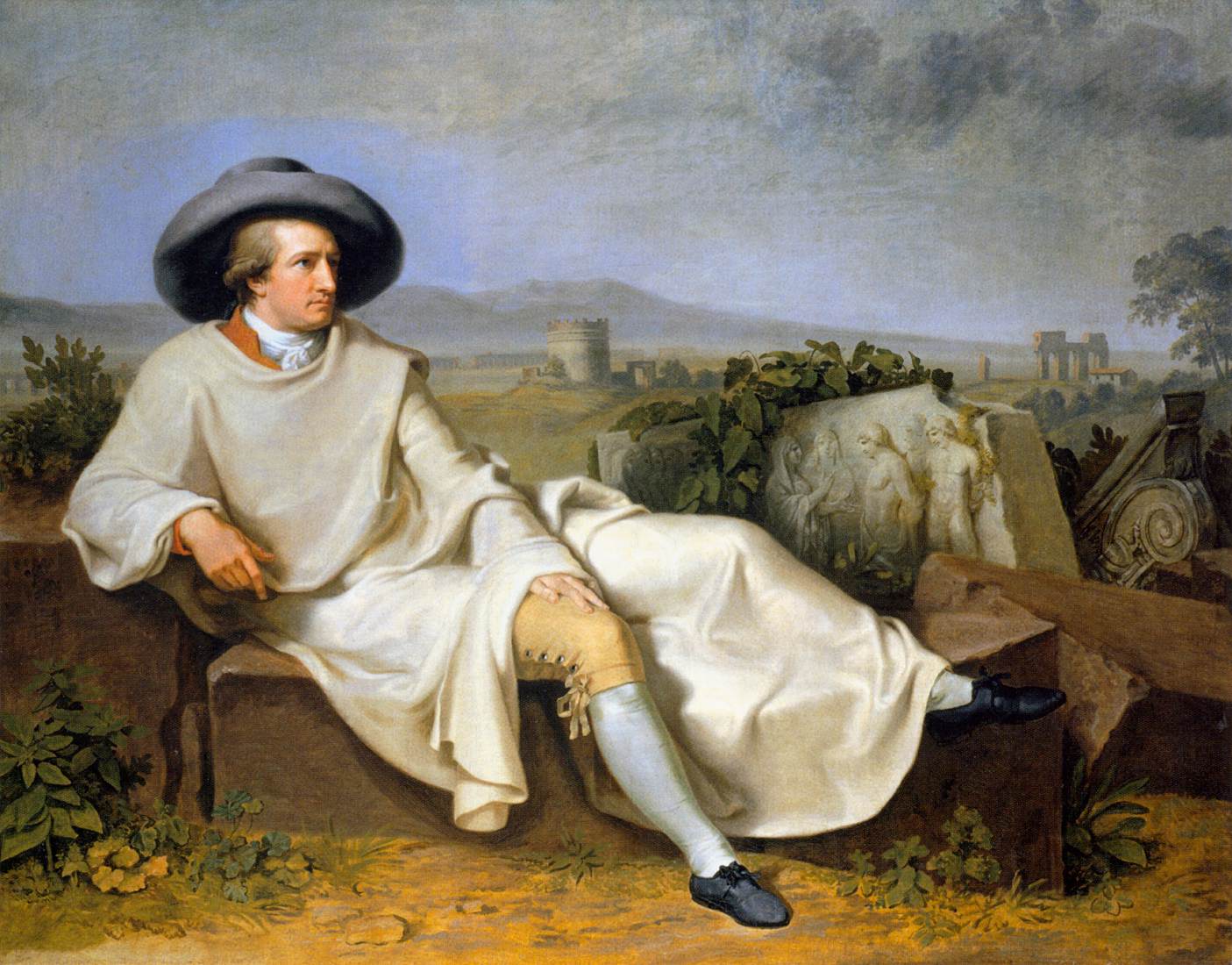Description
"Goethe in the Roman Campagna" is an iconic painting by artist Johann Heinrich Wilhelm Tischbein that captures the essence of the famous German writer Johann Wolfgang von Goethe during his trip to Italy. Originally 164 x 206 cm in size, this masterpiece stands out for its artistic style, masterful composition, use of color and its fascinating history.
Tischbein's artistic style in "Goethe in the Roman Campagna" is a mixture of Neoclassicism and Romanticism, two prominent artistic currents in the 18th century. The artist manages to combine the precision and balance of neoclassicism with the emotionality and imagination of romanticism, creating a painting that transcends the limits of both styles.
The composition of the work is impressive and shows Tischbein's ability to create a balanced and dynamic scene. Goethe, dressed in a white robe, stands at the center of the painting, surrounded by the natural landscape of the Campagna Romana. Goethe's position and his gaze towards the horizon give him a sense of introspection and connection with nature.
The color in "Goethe in the Roman Campagna" is subtle and evocative. Tischbein uses a soft, earthy color palette, with predominant green and gold tones, reflecting the sunlight and serenity of the Italian landscape. The contrast between warm and cold colors creates a mysterious and evocative atmosphere.
The history of this painting is fascinating. Tischbein was invited by Goethe to accompany him on his trip to Italy in 1786, and during his stay in Rome, the artist had the opportunity to portray the famous writer. The painting captures Goethe's moment of quiet and reflection while in the Campagna Romana, a place that inspired his poetry and love of nature.
In addition to its aesthetic beauty, "Goethe in the Roman Campagna" also reveals little-known aspects of the relationship between Tischbein and Goethe. The painting shows the deep connection between the artist and the writer, as well as the mutual admiration that existed between them. This work became a symbol of friendship and collaboration between two great figures of art and literature.
In short, Johann Heinrich Wilhelm Tischbein's "Goethe in the Roman Campagna" is an extraordinary painting that combines neoclassicism and romanticism in one masterful composition. Its use of color and its fascinating history make it a unique and significant work of art. This painting transcends time and remains an inspiring representation of the beauty and connection between human beings and nature.

